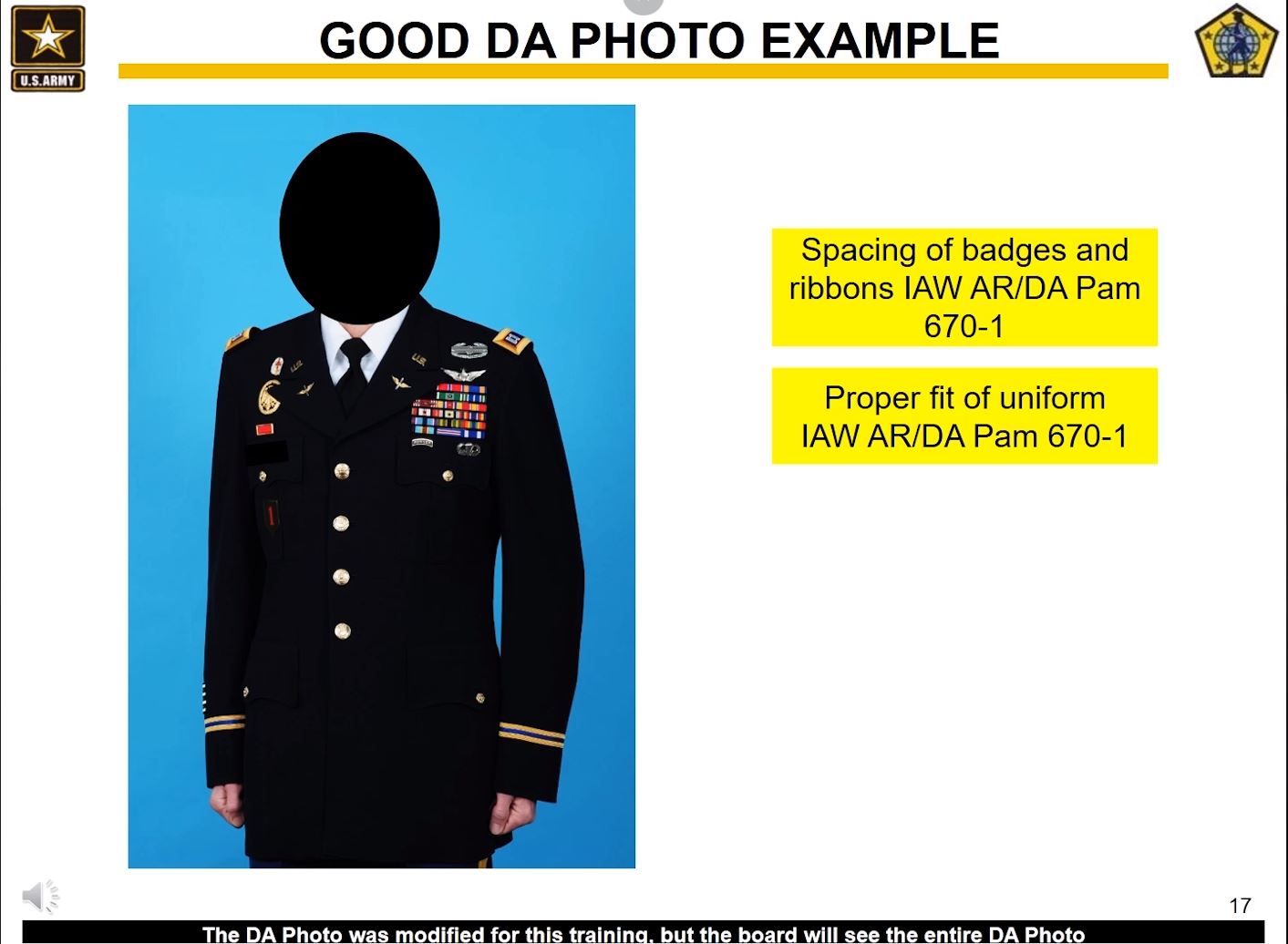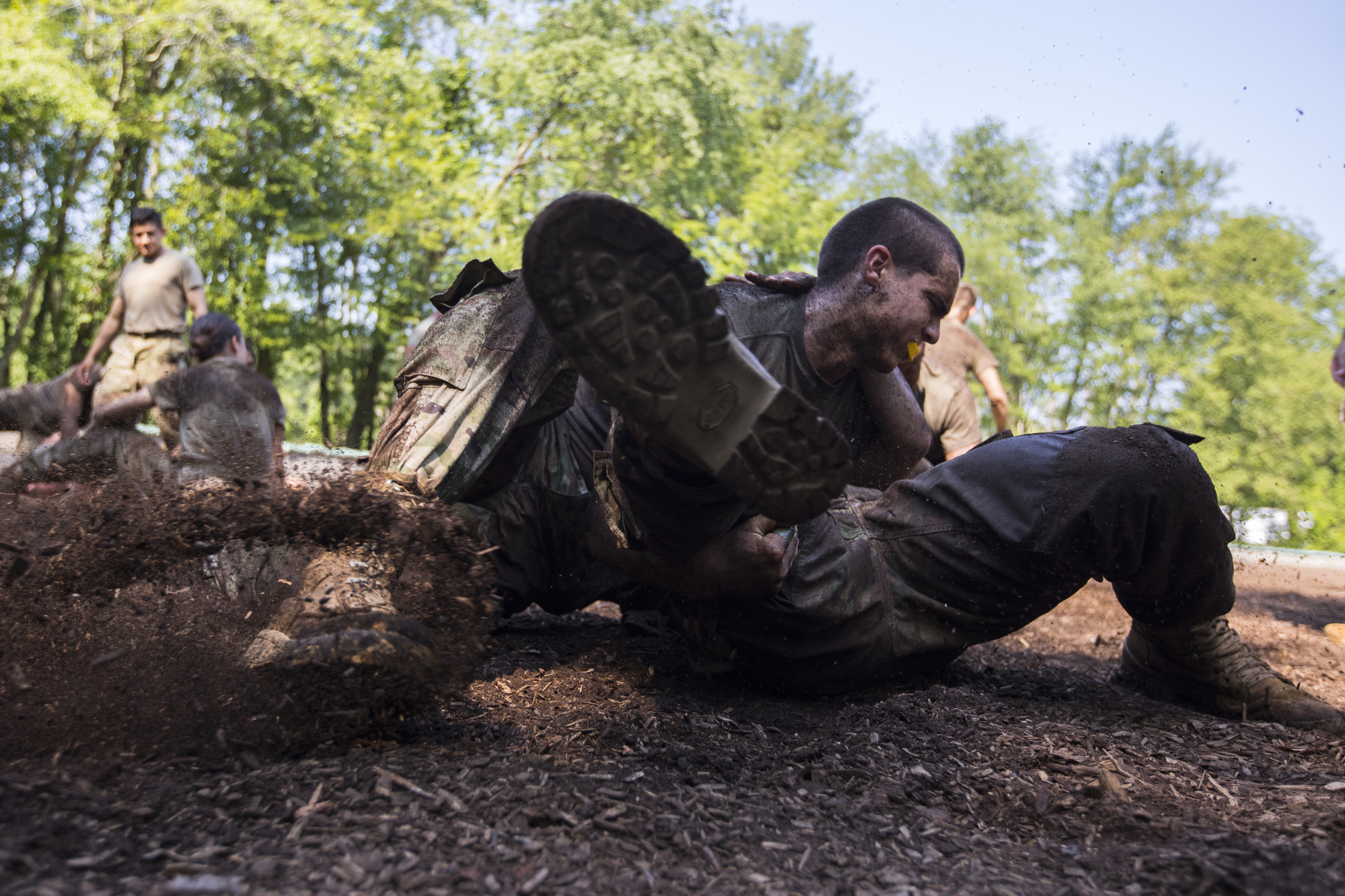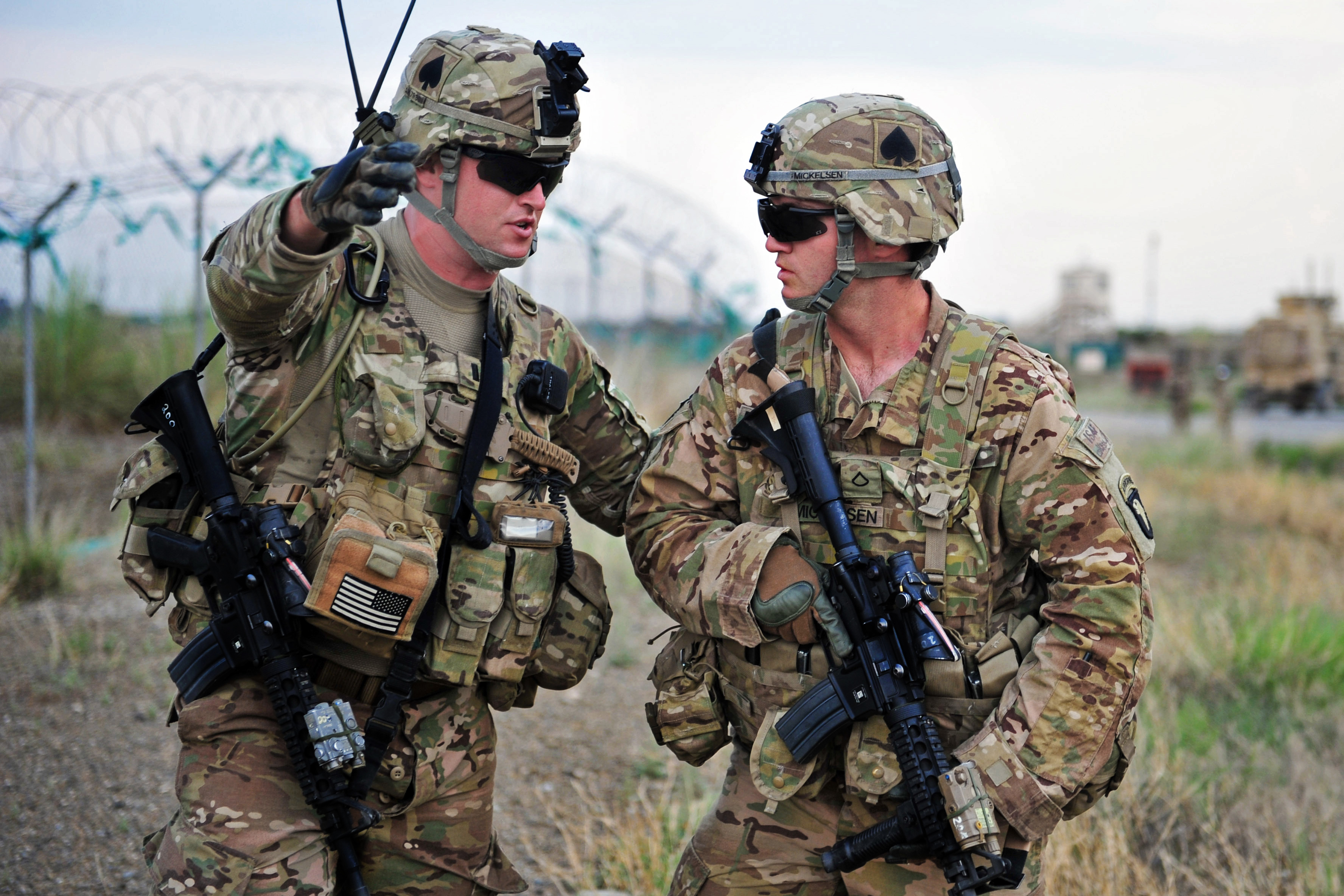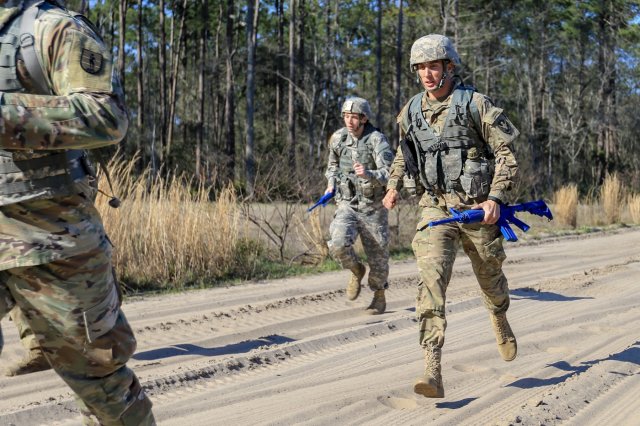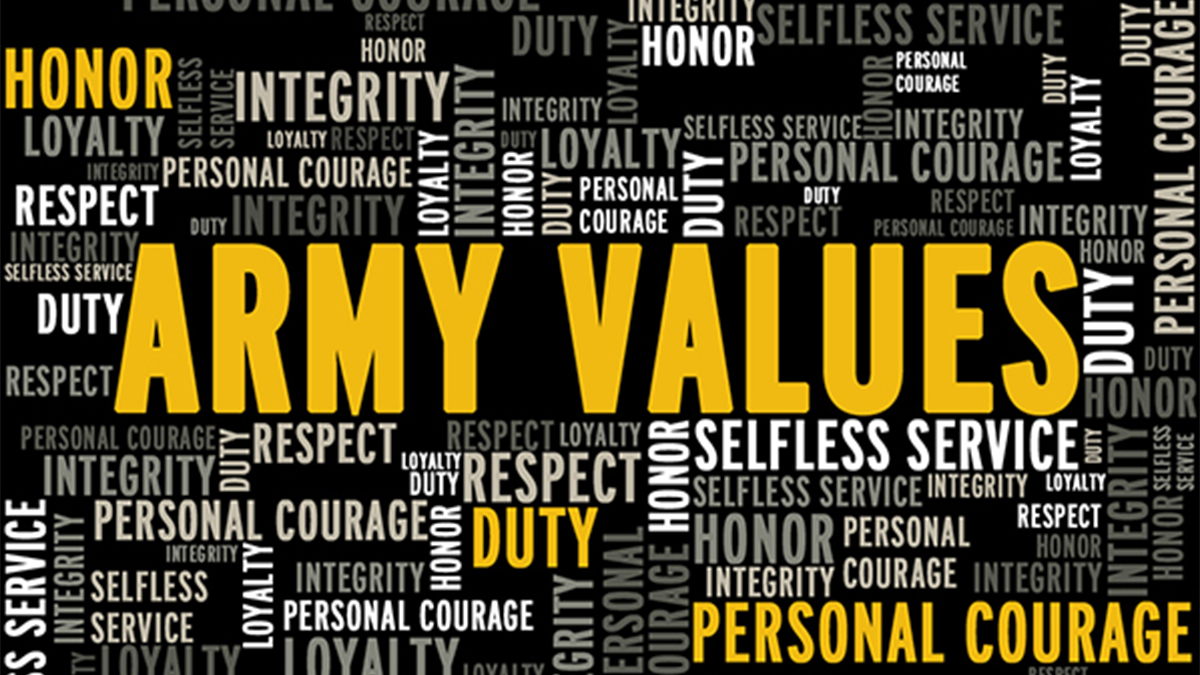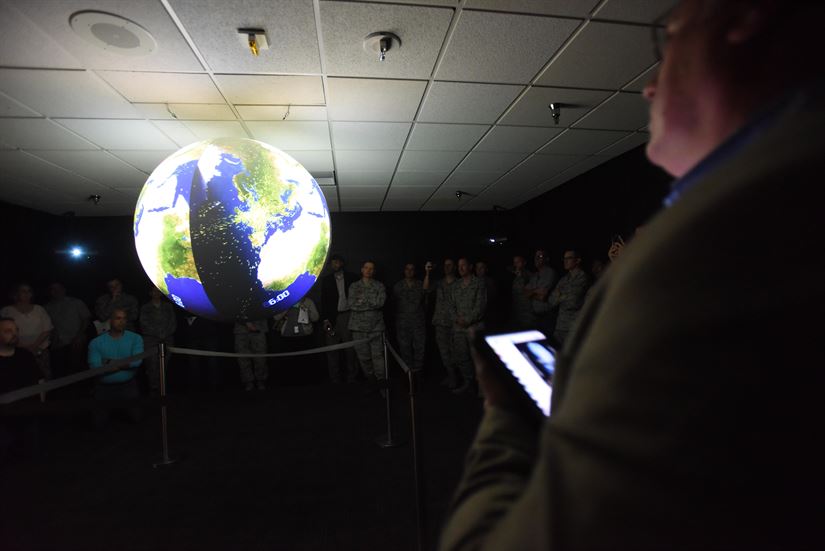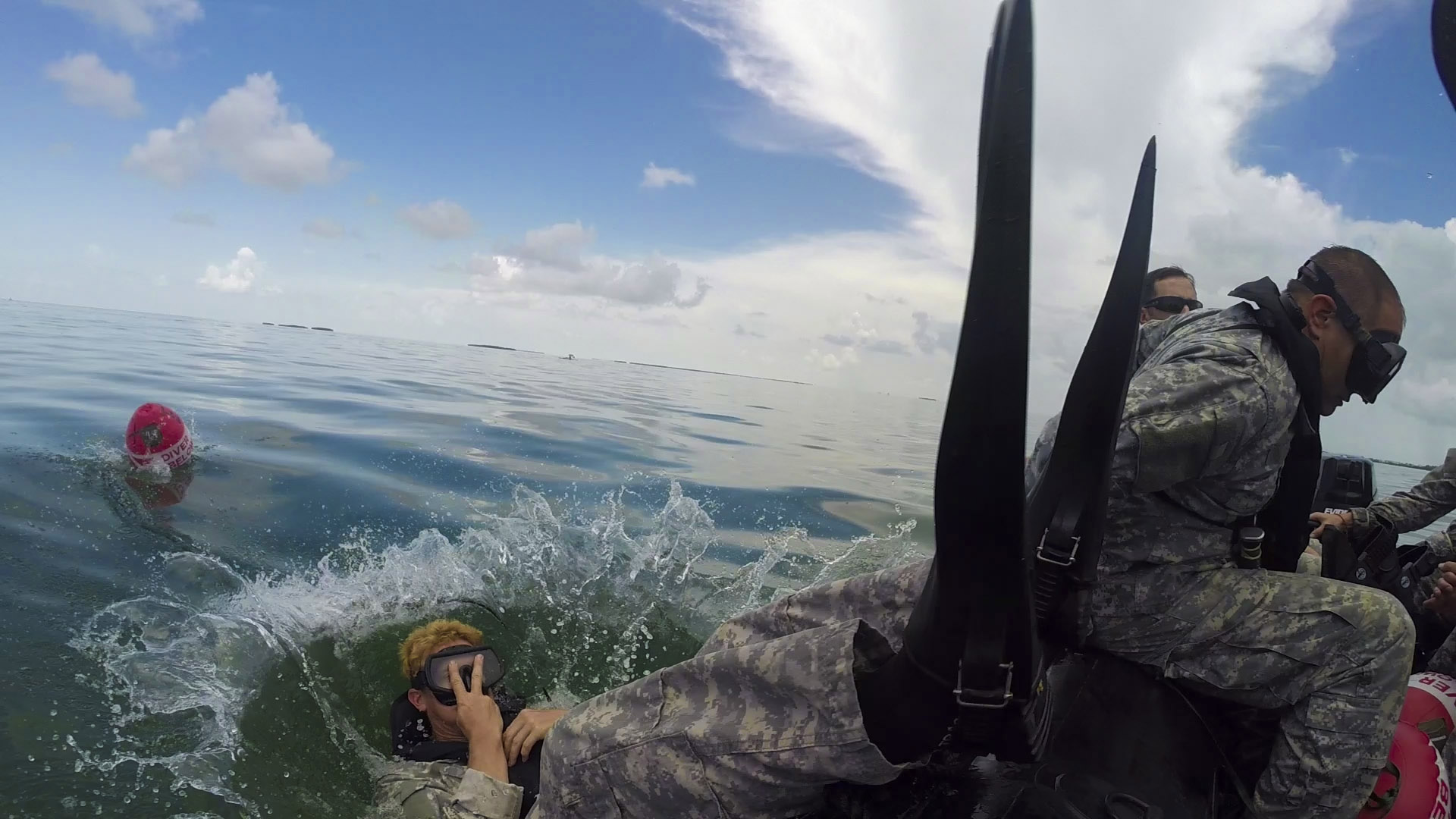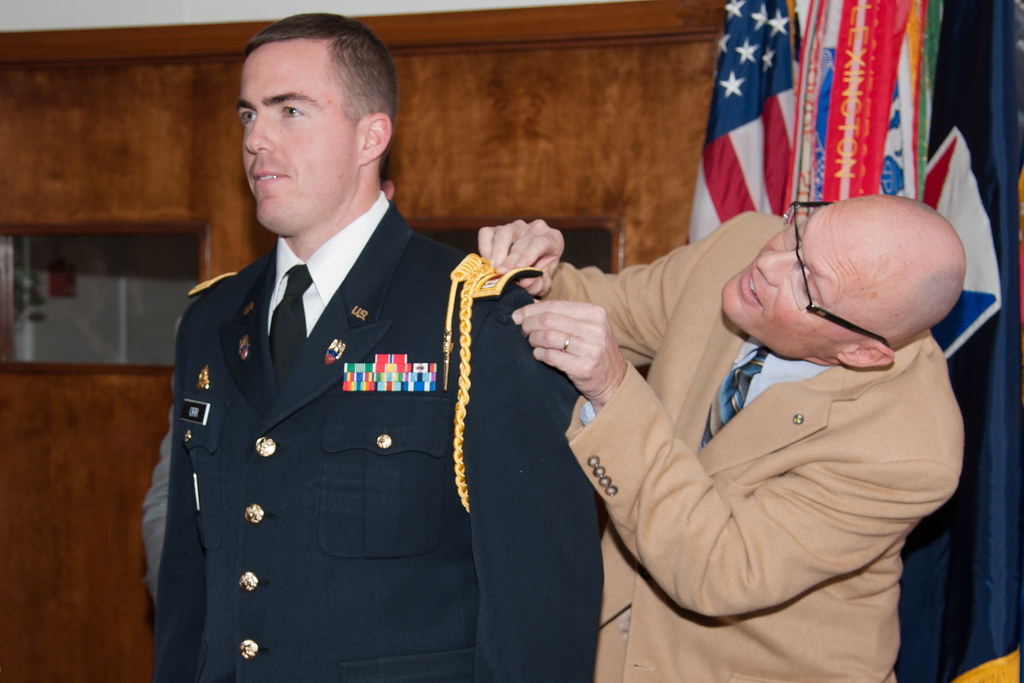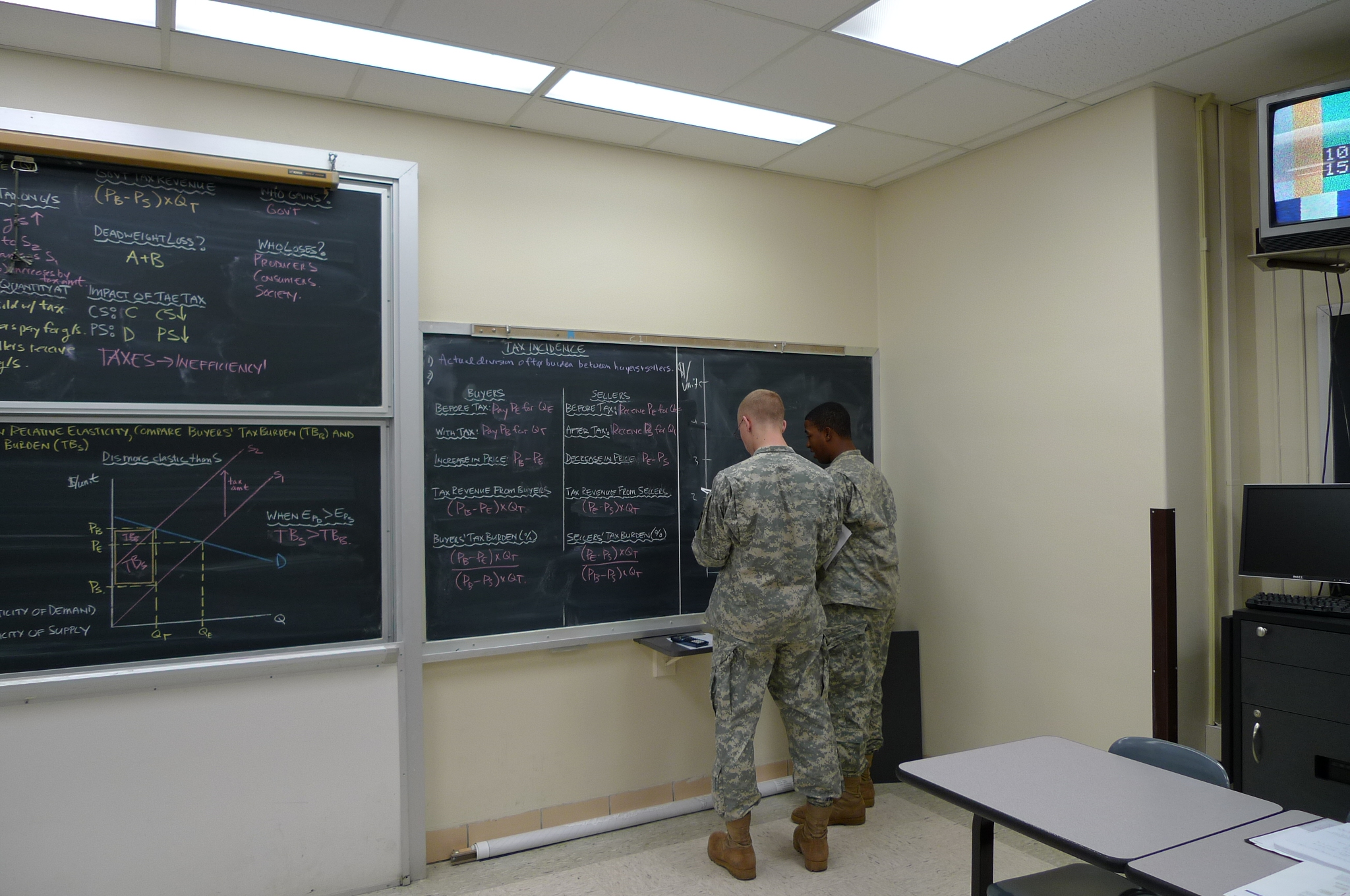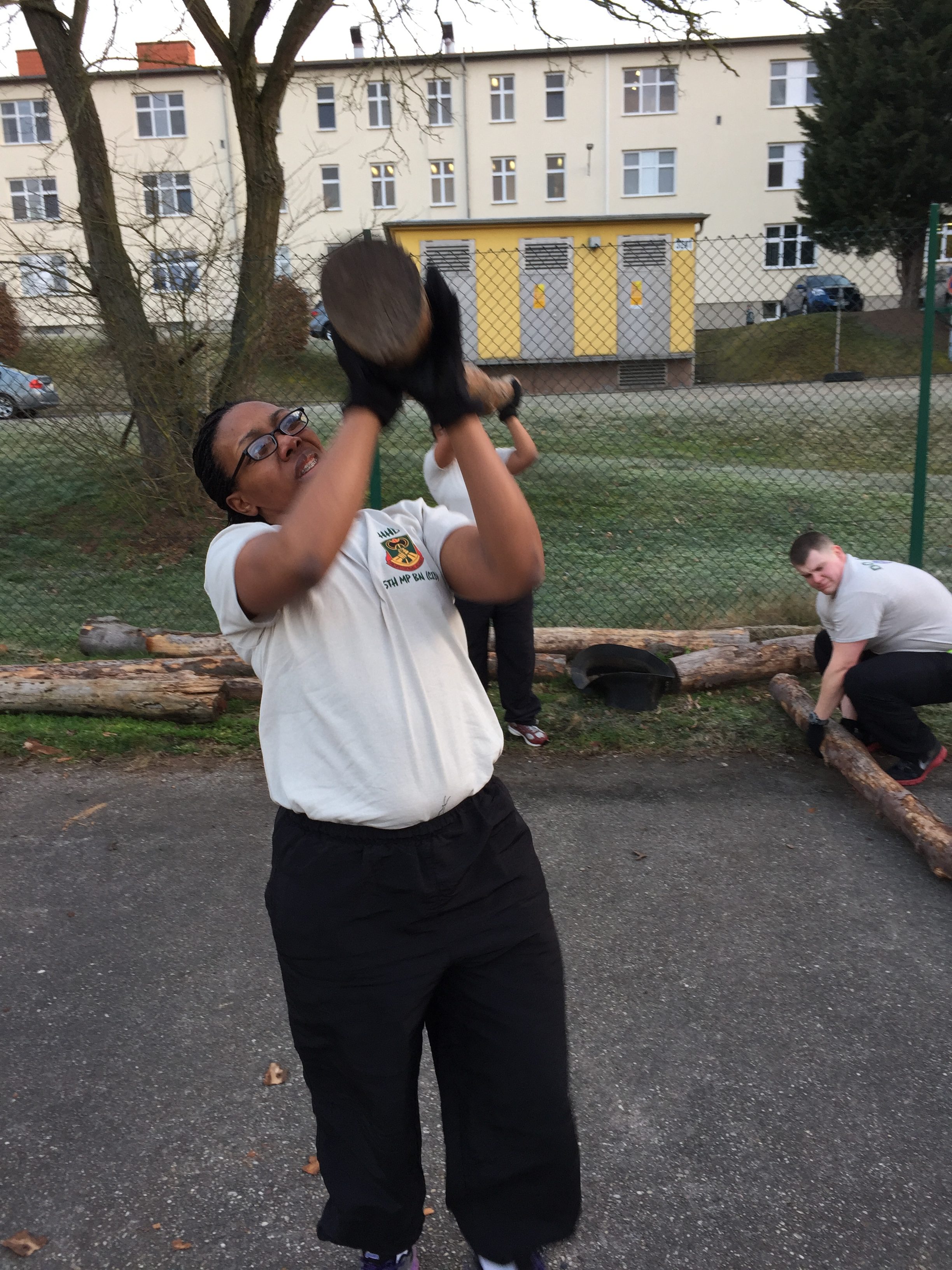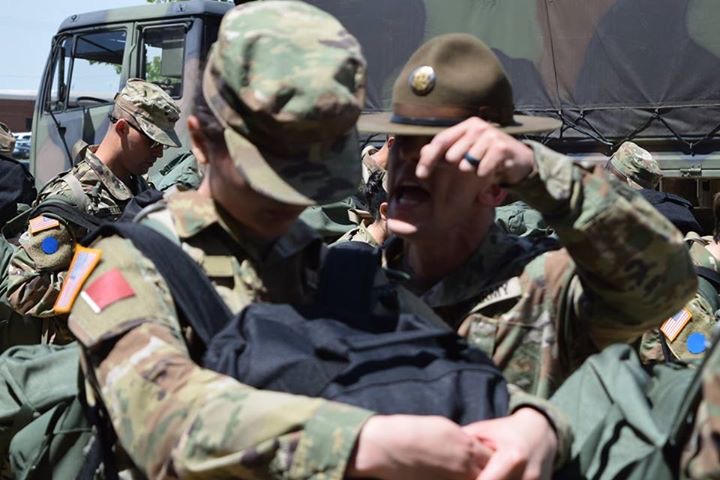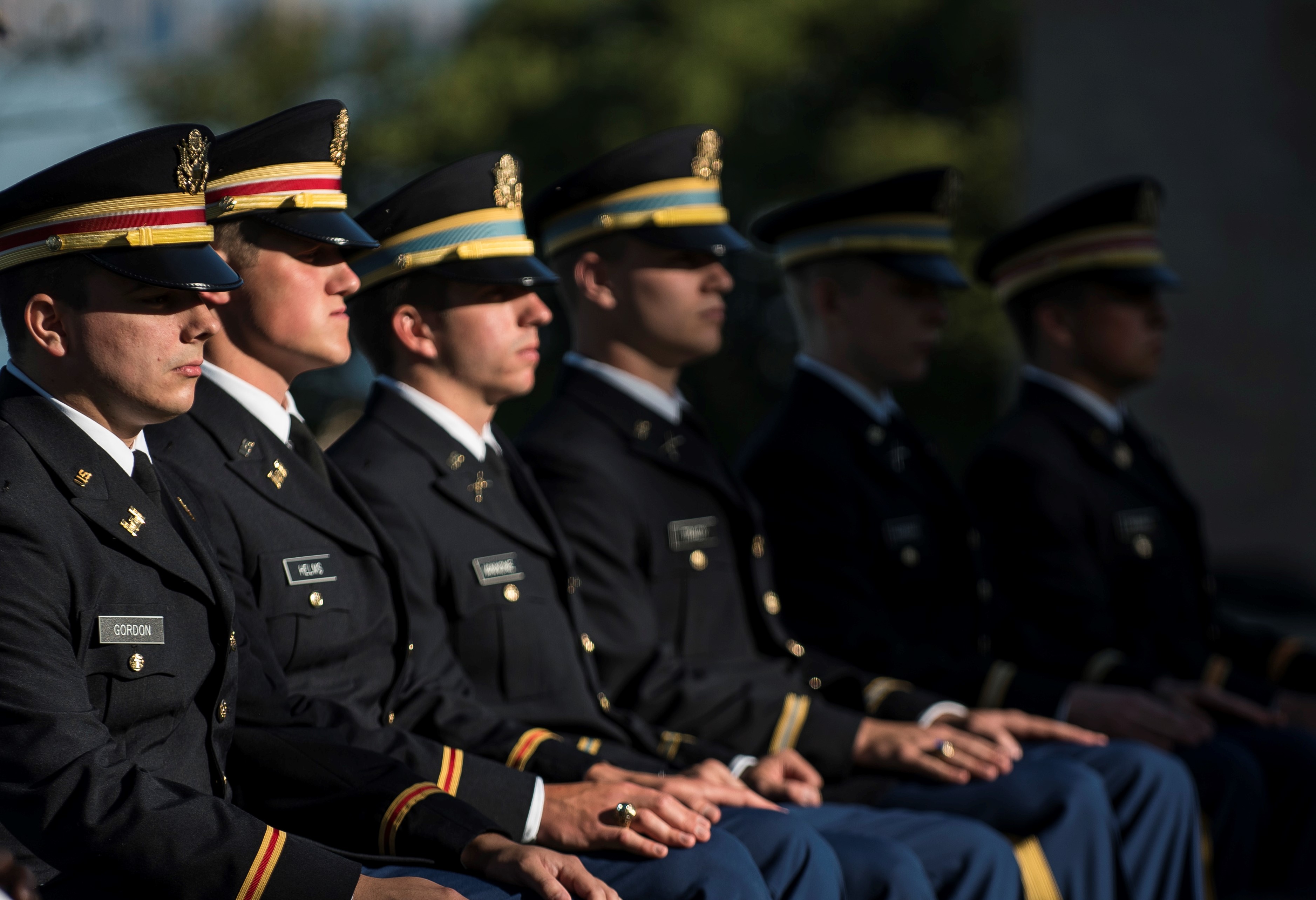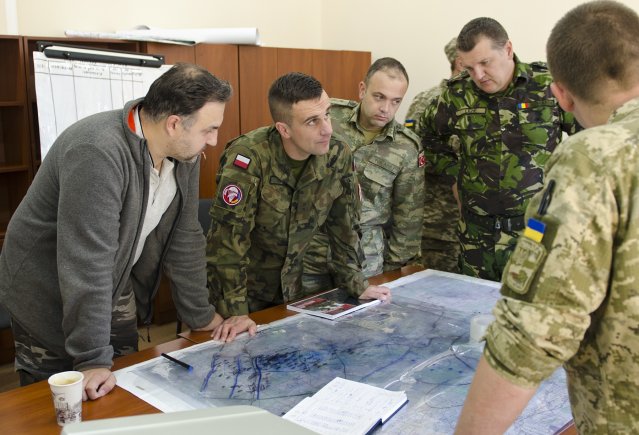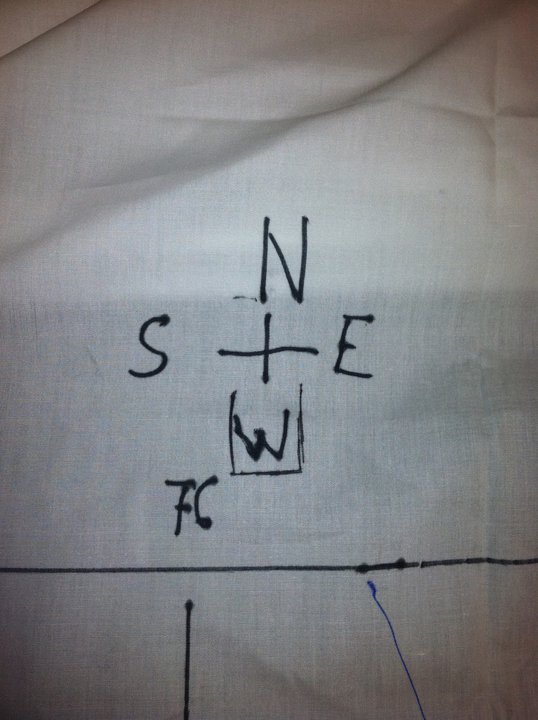-
cplenge wrote a new post, Active Listening for Leaders 5 years, 9 months ago
-
cplenge wrote a new post, What is Your Word Worth? 5 years, 9 months ago
By: Charles Hood and George Gurrola
When GEN Martin Dempsey took over, briefly, as the Chief of Staff of the Army he sent a memo to leaders in the force. He expressed, in his experience, almost anything […]
-
cplenge wrote a new post, Promote Now: The Officer Selection Board Process 5 years, 9 months ago
By: Abdullah Clark
During my time as a Board Recorder at Human Resources Command I wrote an article for the Infantry Branch newsletter on the officer selection board process. That article is included as […]
-
cplenge wrote a new post, Stay Hungry, Fight to Train 5 years, 10 months ago
By: George Fust
What does “leading from the front” look like? Taken as a metaphor, this often-quoted phrase lacks specificity. What if I suggested it means you can skip your next meeting? Are you interested […]
-
cplenge wrote a new post, How to Succeed as a 2LT: It's About More Than "Running Fast and Shooting Straight" 5 years, 10 months ago
By: Maddie Crimmins
As a lieutenant you’re often left to “figure it out” in the everyday aspects of accomplishing your task list but in order to succeed as a Platoon Leader you need to do three things: be humbl […]
-
cplenge wrote a new post, Run Fast and Shoot Straight: How to Win as a Second Lieutenant 5 years, 10 months ago
By: MAJ George Fust
Congratulations! You just commissioned as a second lieutenant. Your college experience is now complete, and it is time to start anew. Now that you have arrived at your first unit, what […]
-
Posting this comment on behalf of a member who asked to remain anonymous:
I just came out of command two months ago and I’ve been following the run fast, shoot straight debate. I think running fast and shooting straight are just the base line but do not necessarily make a good LT. A skilled officer who is toxic is still a toxic leader. As a commander I had the full gammit of LTs.
One of my PLs fit this description to a T- super fast runner, crossfit, and regularly competed in marksmanship competitions. But he had terrible judgement and I frequently had to double back to check on his platoon. He only focussed on things that he thought made him look impressive. For example, when giving a presentation to JROTC cadets on weapons he started cussing about how great it was to shoot people in the face…. and this guy had never been deployed. This was infront of the Garrison PAO as well, which as MPs is a pretty influential networking partner. I mentored this LT the best I could but he was terrible at understanding his audience. He frequently left out crucial information and was overall arogant and unreliable.
Conversely the PL before him was not strong physically or tactically, but she was acutely aware of those shortcomings. We worked out together for months until she improved enough. Her NCOs took her under their wing and mentored her on the range. She didn’t shoot expert, but by the end she was consistently sharpshooter. Also, she cared deeply about everyone in her platoon and understood where the company was trying to go in the long run. Her NCOs constantly went the extra mile for her. I knew I could trust her to get things done on her own and that she was well organized. I made her my XO.
Two very different PLs and what set them apart was humility and common sense. That first LT had all the on paper stats until you watched him try to lead. He did not want to be taught, because he didn’t want to see himself as having flaws. If I was looking for the best PVTs then I’d look for running fast and shooting straight. In officers I first look for someone I can trust to lead when I’m not there.
-
-
cplenge wrote a new post, The Eighth Army Value 5 years, 11 months ago
By: Rose Bernheim
“Discipline is the soul of an army. It makes small numbers formidable; procures success to the weak, and esteem to all.” George Washington, First President of the United States of Ame […]
-
cplenge wrote a new post, What Every Boss Wants: Forecasting 5 years, 11 months ago
By: MAJ George Fust
It was the first day at my new unit. As a staff officer I wasn’t surprised when the Battalion Executive Officer (XO), my new boss, motioned me into his office for a chat. What he said n […]
-
Sir, I think we often overlook the importance of thinking laterally when forecasting our units’ needs. We naturally see the need to nest vertically, but we often neglect to recognize that a critical aspect of vertical nesting is horizontal synchronization to achieve our higher unit’s mission.
I like to think of forecasting for a unit in terms of Maslow’s hierarchy of needs; the more effective a unit is at managing immediate tasks, the better the unit will be able to forecast. At the micro level, leaders that are able to delegate immediate tasks to their subordinates are then able to spend their time focusing on forecasting the organization’s needs.
I appreciate this article immensely as a reminder to continuously gain and maintain the initiative for mission success by searching for ways to see beyond the immediate to identify how the current fight fits into the larger concept of the operation. Thank you for sharing your knowledge and experience,
-
-
cplenge wrote a new post, Army Schools… Go To Them 5 years, 11 months ago
By: MAJ George Fust
Besides looking cool on your chest or sleeve, Army schools should be sought after. They provide opportunities, they demonstrate your technical or tactical proficiency, and the act of […]
-
Sir, this is great advice but what about the commands that do not allow or want officers to go to schools and lose them for a period of time? I have seen numerous instances in my own time where a school is right on post but they can’t “afford to lose me for X amount of time” or “how does this benefit the unit” instead of “how does this benefit the unit, the Soldier, his/her future and the Army”; where the emphasis is sending enlisted soldiers over officers.
-
@robert-f-sweeney6, you raise a valid point. From my own experience, my chain of command was aware of my desire to make the Army a career. During counseling (formal and informal) I would outline why I thought a particular school would benefit my career progression. Additionally, if you can demonstrate that you have a plan for your soldiers to get the schools they need, then your professional development doesn’t come across as self-serving. I have been fortunate to have leaders who realize investing in me makes the Army stronger, even if the unit takes a near-term hit because I am gone. No person is irreplaceable. Have you suggested who will cover down on your task or how your critical position can still get accomplished? I find the “you are too valuable excuse” a weak argument. If something took you out of the fight (car accident, emergency leave, paternity leave, etc) what would the unit do? They would find a replacement and continue the mission. Investing in one’s subordinates’ personal development is a better model for the Army, especially when they are a junior officer. Too often however, the impression is made that a junior officer just wants a cool badge. Does a mech unit really need airborne qualified soldiers? No, but if that officer has the ambition to go the 82nd as a follow-on assignment then it makes a lot of sense.
-
-
-
cplenge wrote a new post, Knowledge is Power (but only when shared) 5 years, 11 months ago
By: MAJ George Fust
We have all heard the phrase “knowledge is power.” What exactly does that mean? Does it mean I should hoard the knowledge I have? Should I keep it safe by refusing to allow my peers and […]
-
cplenge wrote a new post, Wanna Be a General's Aide? Here's How (and what you can learn if not selected) 6 years ago
By: Charles Hood and George Gurrola
Service as a general’s aide can be a profound broadening experience that provides insight into how senior leadership run the Army. The assignment can be a “strong pre […]
-
cplenge wrote a new post, Traits of Successful Leaders — Taking Care of Subordinates 6 years ago
By: Chad Plenge “A leader is not someone who is consumed with his/her own success and his/her own best interests. A true leader is someone who demonstrates to everyone around him/her that their interests ar […]
-
cplenge wrote a new post, Traits of Successful Leaders — Learning 6 years ago
By: Chad Plenge”I have never met a man so ignorant that I couldn’t learn anything from him.”- Galileo Galilei The number of different scenarios or problems a leader could face are innumerable. This is one r […]
-
cplenge wrote a new post, How Junior Officers Can Improve External Self-Awareness 6 years, 1 month ago
By: Charles Hood and George Gurrola
In Tasha Eurich’s latest book Insight, the author contends that self-awareness is the “meta-skill of the 21st century”[1] required to improve oneself and become a bette […]
-
cplenge wrote a new post, Traits of Successful Leaders — Hard Work/Perseverance 6 years, 1 month ago
By: Chad Plenge”There may be people that have more talent than you, but there’s no excuse for anyone to work harder than you.”- Derek Jeter There are countless quotes like the one above that talk about the […]
-
cplenge wrote a new post, Traits of Successful Leaders — Developing Others 6 years, 1 month ago
By: Chad Plenge”One of the most important things you can do as a leader is to develop other leaders. Those leaders will affect hundreds, if not thousands, of other people.”- Eric Kail, in Leadership Less […]
-
cplenge wrote a new post, Ask CJO – How do I Prepare for my First Assignment 6 years, 1 month ago
Dear CJO,
I’m a cadet preparing to graduate this month. This day seemed like it would never come when I started almost four years ago. Now it’s almost here. With classes finishing and graduation just a […]
-
cplenge wrote a new post, Traits of Successful Leaders — Decision Making 6 years, 1 month ago
By: Chad Plenge “A true leader has the confidence to stand alone, the courage to make tough decisions, and the compassion to listen to the needs of others. He does not set out to be a leader, but becomes on […]
-
cplenge wrote a new post, Traits of Successful Leaders — Be the Example 6 years, 2 months ago
By: Chad Plenge “You can’t make me be nice. You can’t make me be good. You can’t make me believe. But your example, your kindness, your patience and love will affect me perhaps enough that eventually […]
-
cplenge wrote a new post, Why You Can't Motivate Your Way to Success 6 years, 2 months ago
By: Cale Queen Why You Can’t Motivate Your Way to Success In a moment of self-reflection I came to the conclusion I am not a motivational speaker. You will never see me on a TED talk (h […]
-
Great piece. I often reflected on this. My 22 mo command was an awkward, ugly, challenging beginning 8 months and a glorious finish where the troop took on a life of its own. I think I accidentally hit on the sense of belonging by continually praising them over the rest, rewarding certain behaviors (caring, striving for excellence, being a family).
-
I never realized how interrelated these ideas were. On my last deployment I saw first hand how expectations of incentives, ie end of tour awards, played a role in relatedness. Every E7 and above expected to get a bronze star. When that didn’t happen morale took a nose dive and a bunch of people left with a bad taste in their mouths. The incentive system -awards- became an expectation.
This isn’t to say awards aren’t valuable but they can’t be the means by which you keep people tied to the organization. My goal as a commander this tour has to been to help everyone understand how they are critical to the mission. The Army doesn’t just throw soldiers at units. Everyone is a part of a team and those small teams form a larger team. To be successful everyone has an important job. For this command it’s about building competence to allow increased autonomy while maintaining relatedness to the mission.
-
- Load More


